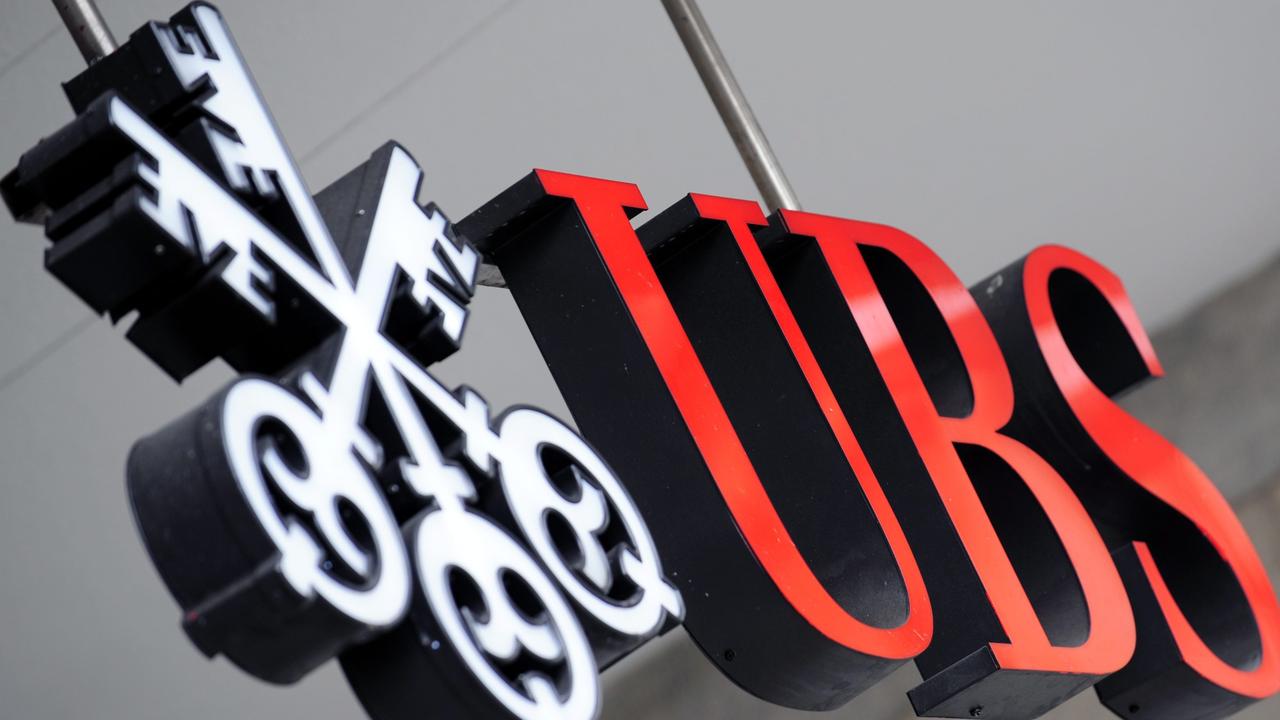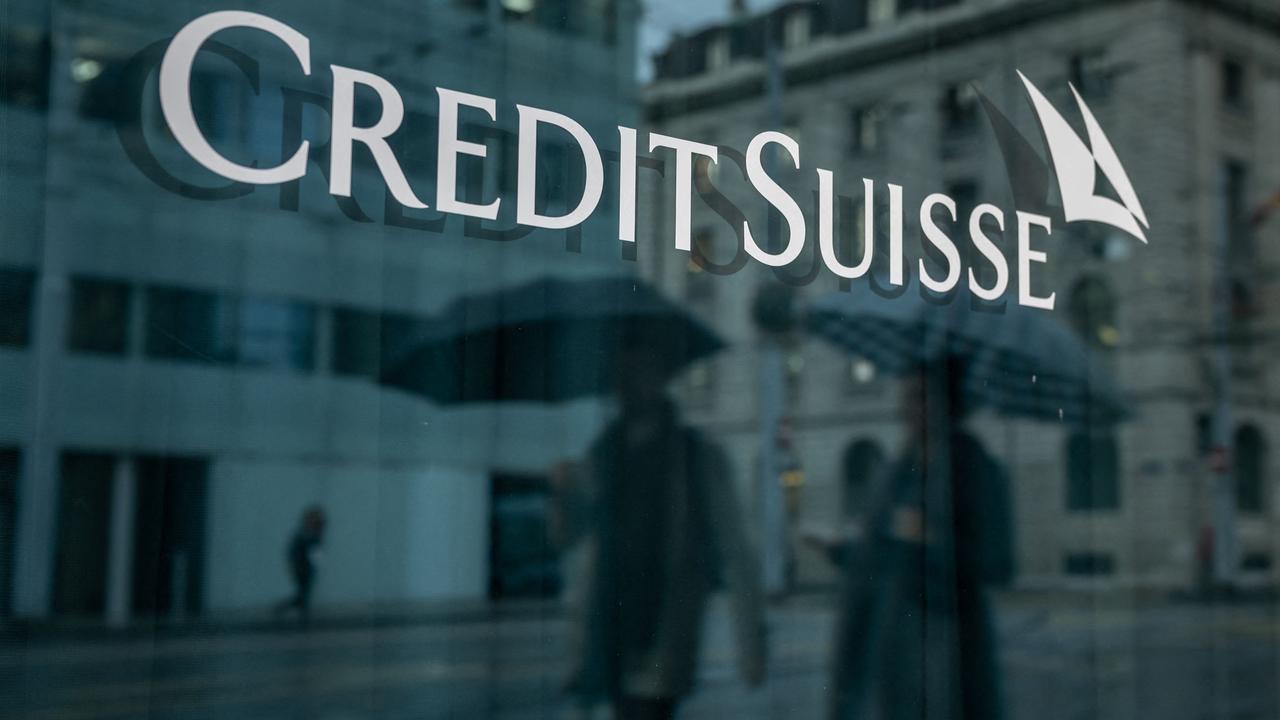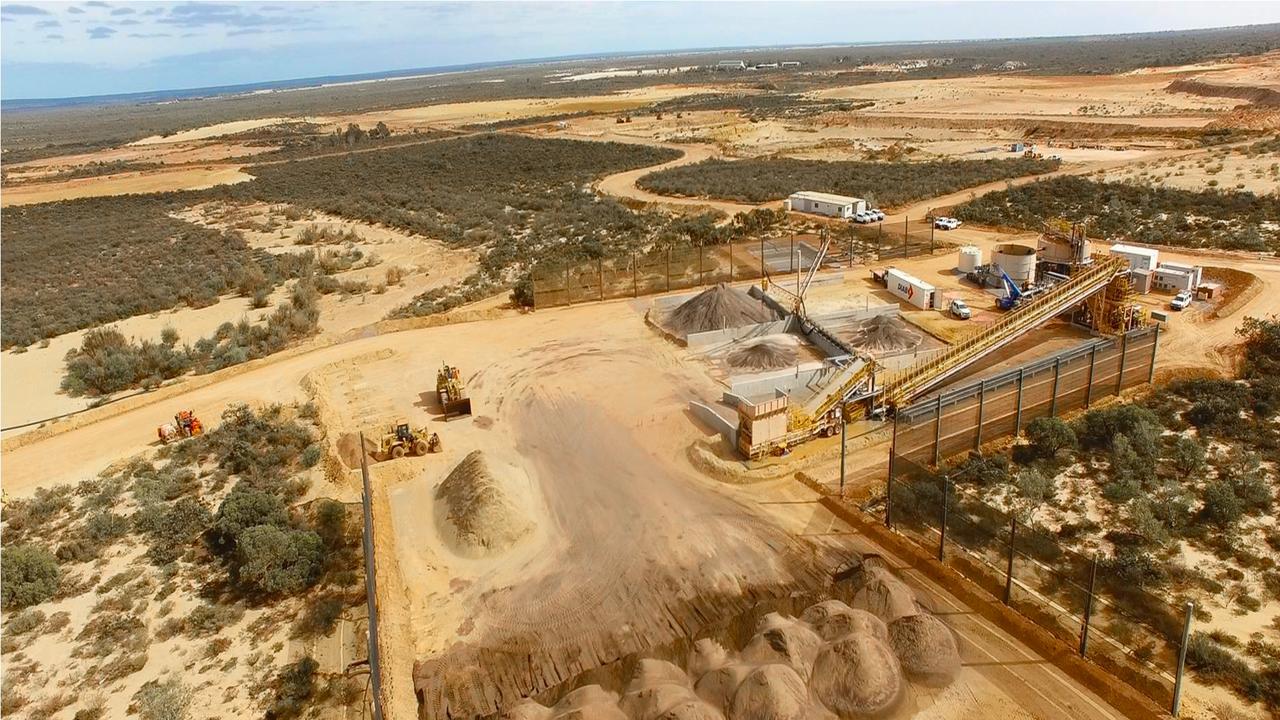UBS cuts earnings-per-share forecasts on Australian banks by an average of 18pc
Australian banks are far removed from the recent crisis among US regional banks and Credit Suisse, but events overseas have had a broad impact on investor confidence, according to UBS.

Business
Don't miss out on the headlines from Business. Followed categories will be added to My News.
Australian banks may be considered far removed from the recent crisis among US regional banks and Credit Suisse, but events overseas have had a broad impact on investor confidence, according to UBS.
The Swiss investment bank has taken a knife to its ratings and share price targets for Australian banks, on the basis that “Australia is no different” in terms of this blow to investor confidence.
“Recent events in the US and Europe in our view have lowered the confidence threshold of investors for banks in their portfolios,” said UBS analyst John Storey.
The ASX 200 banking sector is down 6.5 per cent year-to-date while the S&P/ASX 200 index is flat.
Rising net interest margins associated with aggressive interest rate rises by the Reserve Bank, together with a low unemployment rate and elevated cash levels among consumers led banks to outperform the broader share market in the second half of 2022 and early 2023.
The ASX 200 Financials sector rose 23 per cent from mid June to early February, underpinned by the banks – including a record high in CBA – until a post-reporting season sell-off as CBA traded ex-dividend and analysts concluded that net interest margins had most likely peaked.
The financials index has fallen 12 per cent from its early February high.
UBS now sees a range of headwinds for banks, including “fiercer” competition for bank deposits, higher-than-expected bad debts, and tightening bank-sector regulation in light of offshore stresses.
“After a strong start in January, Australian banks have more than given back these gains,” Mr Storey said. “Fears of contagion and counterparty risks associated with the fallout from the US regional bank failures and the unfolding developments in Europe, see the market fragile and lacking confidence in the bank equity story.
“Interest rate views are also changing, with the market less sure policy rates will rise much further.
After updating his earnings forecasts to reflect some of these dynamics, Mr Storey cut his earnings-per-share forecasts for the sector in FY24 and FY25 by 6-8 per cent and slashed his price targets for the major and regional banks by 18 per cent on average.
While keeping his Buy ratings on Macquarie Group and ANZ, Mr Storey lowered his 12-month target price on ANZ by 17 per cent to $25 a share.
He cut his ratings on Bank of Queensland, Bendigo & Adelaide Bank, and National Australia Bank to Sell, while lowering his respective target prices by 20-25 per cent.
Westpac was cut to Neutral and its target price lowered 17 per cent to $22.50.
CBA kept its Neutral rating with its target down 1 per cent to $100.
“The events in the US and Europe this past week serve as a stark reminder that most bank instability likely stems from liquidity shortfalls driven by deteriorating confidence,” Mr Storey said.

“In the Australian and global context, we think this makes it more likely that banks will compete more aggressively for deposits – to avoid being the bank with the worst deposit dynamics.
“Macquarie has been successful at gaining share but CBA and Westpac’s recent deposit pricing points now sit ahead of Macquarie, as does Bank of Queensland.”
Mr Storey also prefers large banks over small ones and retail over wholesale funded ones.
He believes diversification is important both geographically and by line of business.
But Australian banks and the overall system in Australia are “well positioned to deal with the unfolding pressures on the global banking sector”, Mr Storey said.
JP Morgan analyst Andrew Triggs said he did not expect Australian banks to suffer a repeat of deposit outflow and big losses in government bonds as experienced by some US regional banks, or any meaningful impact from the write-off of Credit Suisse AT1 instruments.
But there were likely to be “flow-on impacts on Australian bank wholesale funding spreads”.
He said their debt issuance had “paused” over the past two weeks, although widening in major bank credit default swaps spreads had been “relatively limited” at about 15 basis points.
“Given ongoing wobbles in overseas markets, some funding cost impact is likely unavoidable,” he said. But the major banks are “well progressed” on their wholesale funding tasks this year, and those that are less well progressed have seen “healthy Australian deposit growth in recent months.”
“Taken together, the majors look well prepared for the current difficult market conditions, even considering the need to replace cheap Term Funding Facility funding (from the Reserve Bank).”
A 50 basis point widening in wholesale funding spreads over the next 12 months would shave 2 basis points off net interest margins for the major banks, according to JP Morgan.
Morgan Stanley said margin headwinds had emerged for banks in recent months.
“Given recent developments in global markets, changing customer behaviour and growing regulatory scrutiny, we believe that deposit rates will continue to rise by more than the cash rate in the months ahead,” said Morgan Stanley analyst Richard Wiles.
He expected the major banks’ margins to fall by an average of 8 basis points in FY24.
Originally published as UBS cuts earnings-per-share forecasts on Australian banks by an average of 18pc







